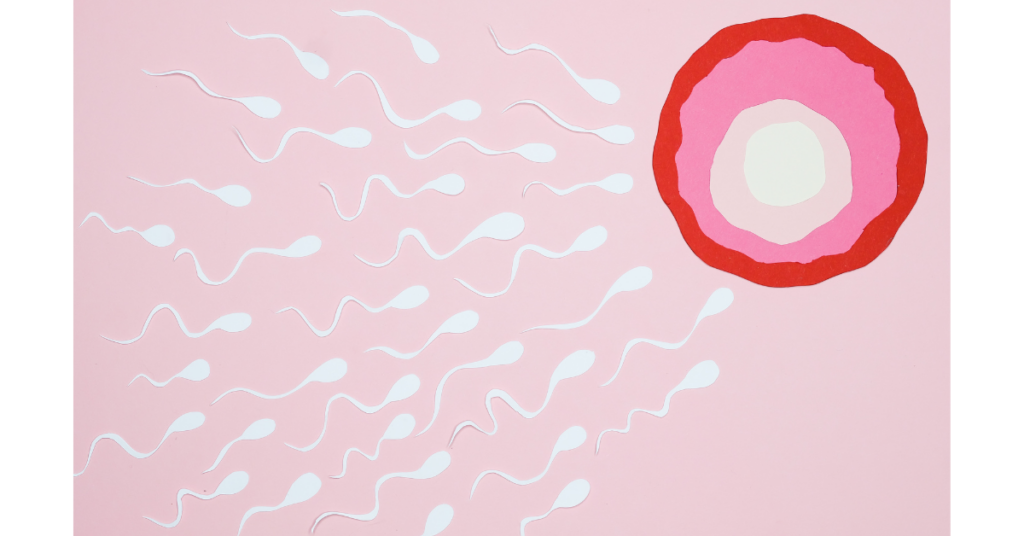What are Subfertility and Infertility?
In order to be considered as having a fertility problem, a woman must fail to conceive after a year or more of regular sexual activity around the time of ovulation. More precisely, subfertility is a delay in conceiving, while infertility is the inability to conceive naturally after one year of trying or when implantation leads to miscarriage (1,2).
Causes
There is so much involved when it comes to the reproduction system that a problem could arise anywhere. The most commonly seen causes are blocked fallopian tubes, endometriosis, chlamydia, auto-immune disease, or even an allergic reaction to their partner’s sperm. There are also psychological reasons at play such as the fear of responsibility of parenthood, fear of commitment, own childhood experience, and so on.
Complementary Approach
Eat a well-balanced diet with plenty of organic fruit and vegetables. Drink at least eight glasses of water a day.
Don’t consume coffee. Tubal disease and endometriosis can lead to infertility (3,4,5), and as coffee has been linked to these two conditions it is best avoided. Caffeine is found in the following: Chocolate, tea, cocoa, some soft drinks, and some over-the-counter products. Avoid all junk food or foods that are fatty and processed.
Nutritional Supplements
The following information does not constitute a prescription or recommended dose – studies have been conducted using the dosages stated and are included for your information only. The nutrients mentioned here are often recommended by healthcare practitioners.
Multivitamin (6) many infertile women find they are deficient in variety of different vitamins, so it is essential to take supplements. Take as directed on label.
Iron in cases of deficiency. Take as directed on label (7).
Vitamin E (8,9) is referred to as the ‘sex vitamin’, because it assists the body to carry oxygen to the sex organs. Take 200 IU daily and over a period of time increase the dose to 1,000 IU.
Para-aminobenzoic acid (PABA) plays a role in restoring fertility in some women (10,11). Take 50 mg daily.
Zinc is important in the functioning of the reproductive organs. Take in lozenge form 80 mg a day but be sure not to take more than 100 mg if taking other supplements that contain zinc.
Vitamin B Complex is important in the reproductive gland function. Take 50 mg daily.
Selenium deficiency has been linked to infertility in women. Take 200-400 mcg daily.
Herbs
Vitex (Agnus Castus) (12) Many natural medical practitioners suggest taking 40 drops of liquid extract of vitex each morning with water. Alternatively take 1 tablet each morning. Vitex usually needs to be taken for at least 3 months before any benefits are seen.
The herbs mentioned here have historically been considered beneficial in the treatment of various conditions including infertility. Therefore, these, and previously mentioned herbs are often recommended by healthcare practitioners.
Damiana has been hailed as an aphrodisiac since ancient times and has been used to treat various sexual disorders. You can make a tea by adding 1 gram of dried leaves to a cup of boiling water. Let steep for 10-15 minutes and drink 3 cups per day. To use in tincture form, take 2-3 ml 3 times a day. In capsule form, take 400-800 mg 3 times daily. Damiana is usually used in conjunction with other herbs, however, one of the side effects of damiana is slight diarrhoea.
Other herbs that are good to take in the treatment of female infertility are licorice root (do not use if you have high blood pressure), dong quai, false unicorn root, and wild yam root.
Further Information
Changes in ovulation can occur if you have very hot baths and saunas, as too can vigorous exercise, so avoid all these activities.
There is a lowered chance of the fertilised egg implanting itself if you smoke and drink so avoid doing both these.
Some women are allergic to sperm and developed antibodies. If that is the case, it is worth considering using a condom for a month or so. That way, the sperm antibodies can die off so when you have sex again without a condom there will be no antibodies available to attack the sperm.
References
1. Santos-Longhurston, A. What to Know About Subfertility and How to Increase the Odds of Conception. Heathline. 13 May, 2019.
2. Sengar C. Do You Know The Difference Between Infertility and Subfertility? Doctor Explains. Onlymyhealth. 12 April, 2021
3. Joesoef MR, Beral V, Rolfs RT, et al. Are caffeinated beverages risk factors for delayed conception? Lancet 1990;335:136–37.
4. Fenster L, Bubbard A, Windhan G, Hiatt R, et al. A prospective study of caffeine consumption and spontaneous abortion. Am J Epidemiol 1996;143(11 suppl);525 [abstr #99].
5. Cramer DW. Letter. Lancet 1990;335:792.
6. Czeizel AE, Metneki J, Dudas I. The effect of preconceptional multivitamin supplementation on fertility. Internat J Vit Nutr Res 1996;66:55–58.
7. Rushton DH, Ramsay ID, Gilkes JJH, Norris MJ. Ferritin and fertility. Lancet 1991;337:1554 [letter].
8. Thiessen DD, et al. Vitamin E and sex behavior in mice. Nutr Metabol 1975;18:116–19.
9. Bayer R. Treatment of infertility with vitamin E. Int J Fertil 1960;5:70–78.
10. Wiesel LL, et al. The synergistic action of para-aminobenzoic acid and cortisone in the treatment of rheumatoid arthritis. Am J Med Sci 1951;222:243–48.
11. Sieve BF. The clinical effects of a new B-complex factor, para-aminobenzoic acid, on pigmentation and fertility. South Med Surg 1942(March);104:135–39.
12. Propping D, Katzorke T. Treatment of corpus luteum insufficiency. Zeitschr Allgemeinmedizin 1987;63:932–33.

